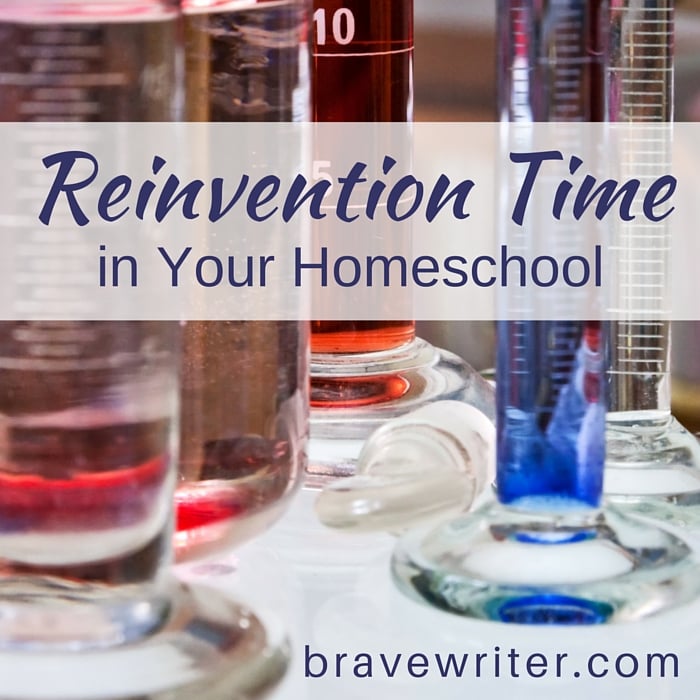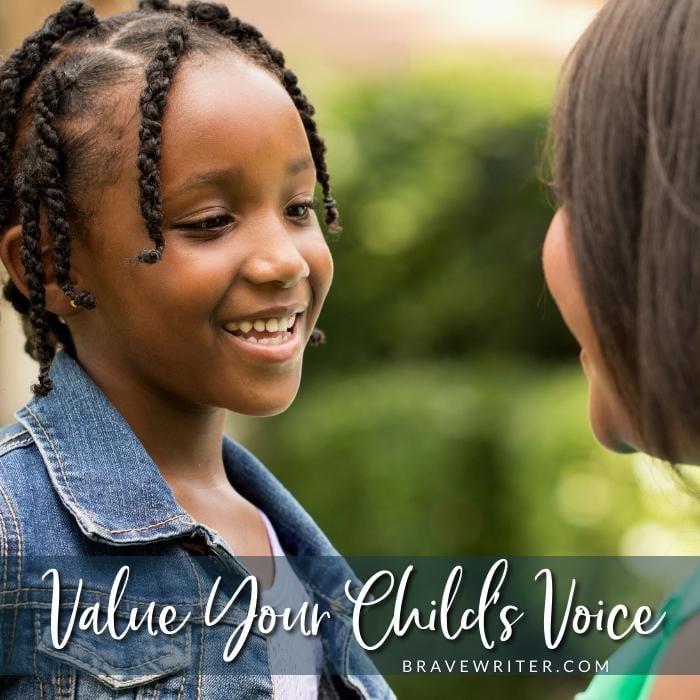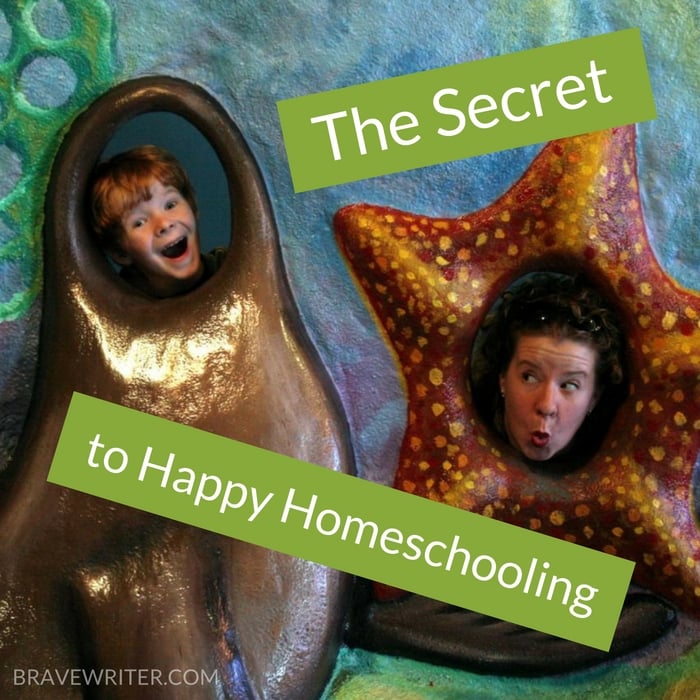
Have you ever noticed that you reinvent homeschool every year? You would think, particularly after having one child go through a certain grade level, that when the next child in line hit the same age and stage, you’d have it all dialed. You’d pull out your notes, books, and memories from the first kid… and apply them as a template right over top of the next one!
Yet it rarely works that way.
Instead, the next child comes down the pike and you find yourself doubting the old tricks and books. You’ve since heard of a sparkly new program that teaches itself and you want to try it. This child is so different from the last one that the old way just wouldn’t work.
Sometimes you will be three children in and realize that you never did like that math curriculum and now that you’ve figured it out, you can’t spend ONE MORE DAY looking at that hideously designed book with its awful colors and nonsense explanations, no matter how much you spent on it.
As you grow in your career of home education, you also get smarter. What satisfied you the first year often feels cramped or schooly to the new brave you that sees learning through new eyes. You feel freer to risk, to try avant garde strategies. You stop quantifying the hours of the day and allow yourself to “count” card games and nature hikes as part of your children’s education.
I had a phone call with a mother of nine children, with two of them grown and raising their own kids, say to me that she was unsure what writing program to buy. She’d already successfully reared, homeschooled, and married off two kids yet was not quite sure if she had the best writing plan for the last two kids still at home.
If anyone should be at ease in this home education business, you’d think it would be a mother who could reassure herself that with two successful homeschool grads, she must be doing a good enough job with the tools she’s already got!
But that’s not how it works.
The truth is: we homeschooling parents are on a never-ending campaign to do right by our children.
That means we tirelessly turn over rocks looking for the next best rightest brightest choice for this specific child at this specific stage of life.
Not only that, we’re a part of the equation too. We want to be stimulated.
We look for triggers for our creativity, we feed our learning curve new ideas and philosophies, we expand our sense of fun and imagination, and we want reassurance that we are making measurable progress with our children.
To that end, homeschooling parents reinvent their homeschools every single year.
It’s a part of the warp and woof of this lifestyle. It’s what enables parents to sustain 20 year commitments. It’s what creates tailor-made educations that accommodate the wide-variety of people in our families.
As you spend time researching what you’ll do next year, allow yourself to go on the adventure of reinvention.
Ask yourself 5 questions to stimulate your thinking
1. What works? How do I feel about it?
If it works, you don’t necessarily have to change it. But if it works and you are sick of it or the child is bored or you’re going through the motions, it’s fine to change it up—even if it’s “working” in theory.
2. What’s not working? What can I do about it?
If it’s not working, you may need more than a new book. You may need a whole new perspective or view of how to work with this particular subject. Read about the philosophy of education with regard to this subject area and shift how you see it.
3. What do I wish I were doing that I’m not?
Try doing it – for a month or more – to see! Take a small bite of the apple. You don’t have to go in all the way… yet.
4. What am I doing that I wish I weren’t?
Can you give it up for a week, a month, or reduce it to just a couple times a week? See how that feels?
5. What do my kids wish we were doing that we aren’t?
Get it on the schedule—plan it, do it!
Enjoy reinvention. No guilt. No self-doubt. It’s one of the many great rewards and satisfactions of being a career home educator.

Top image by Horia Varlan (cc text added)
























